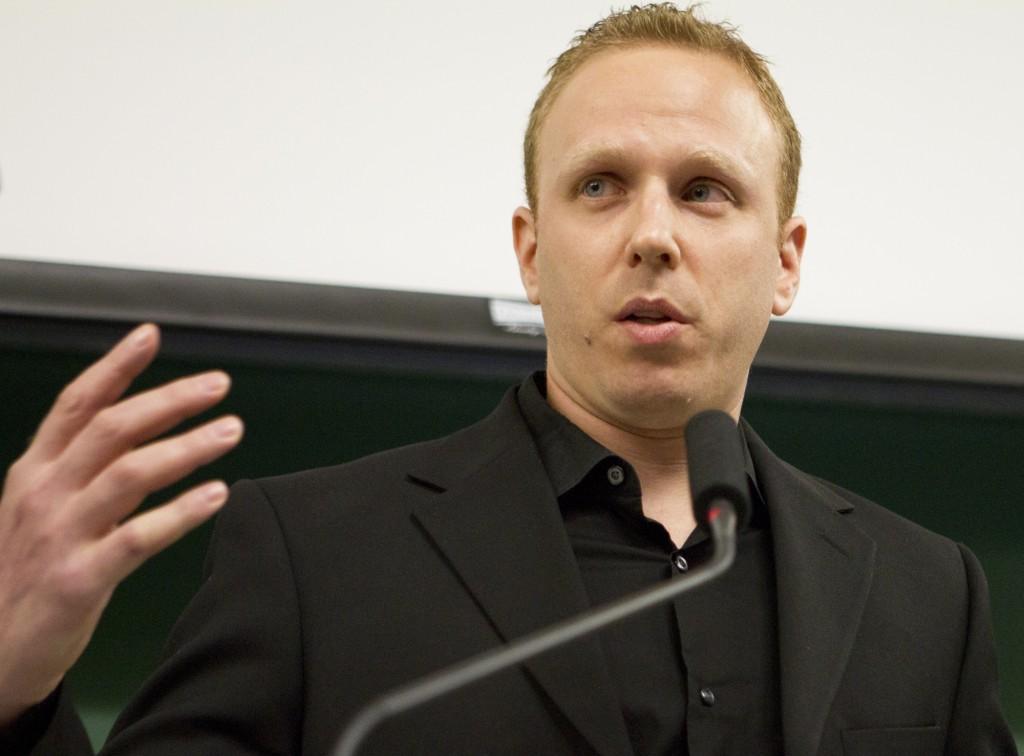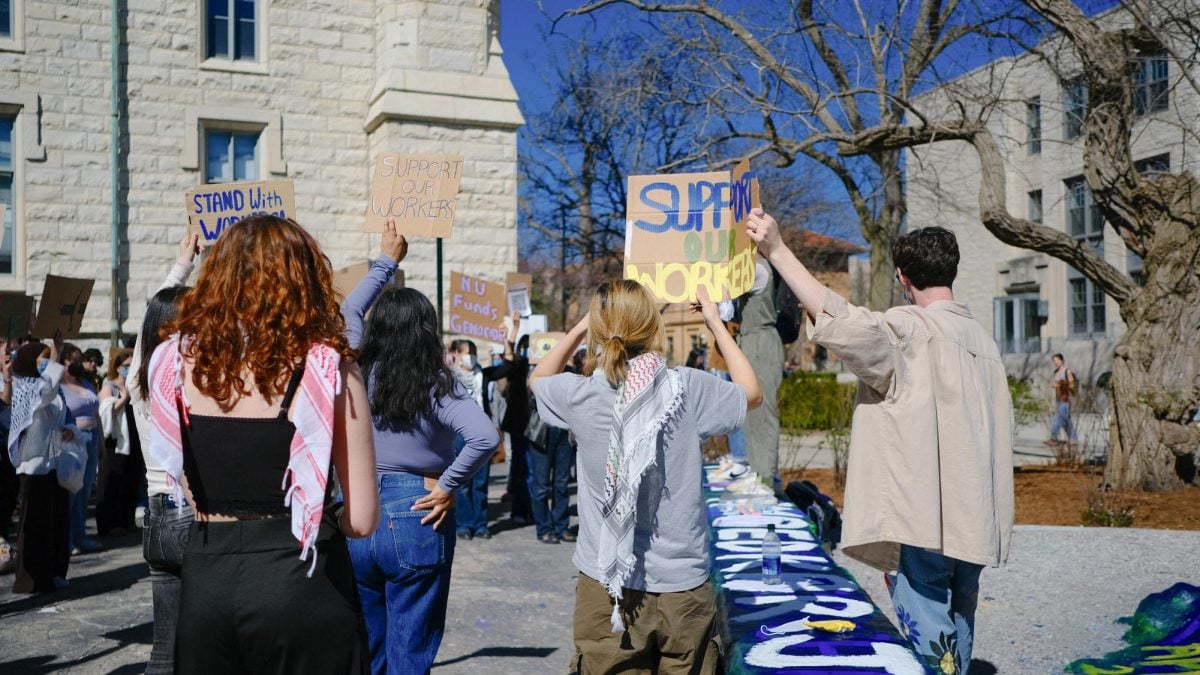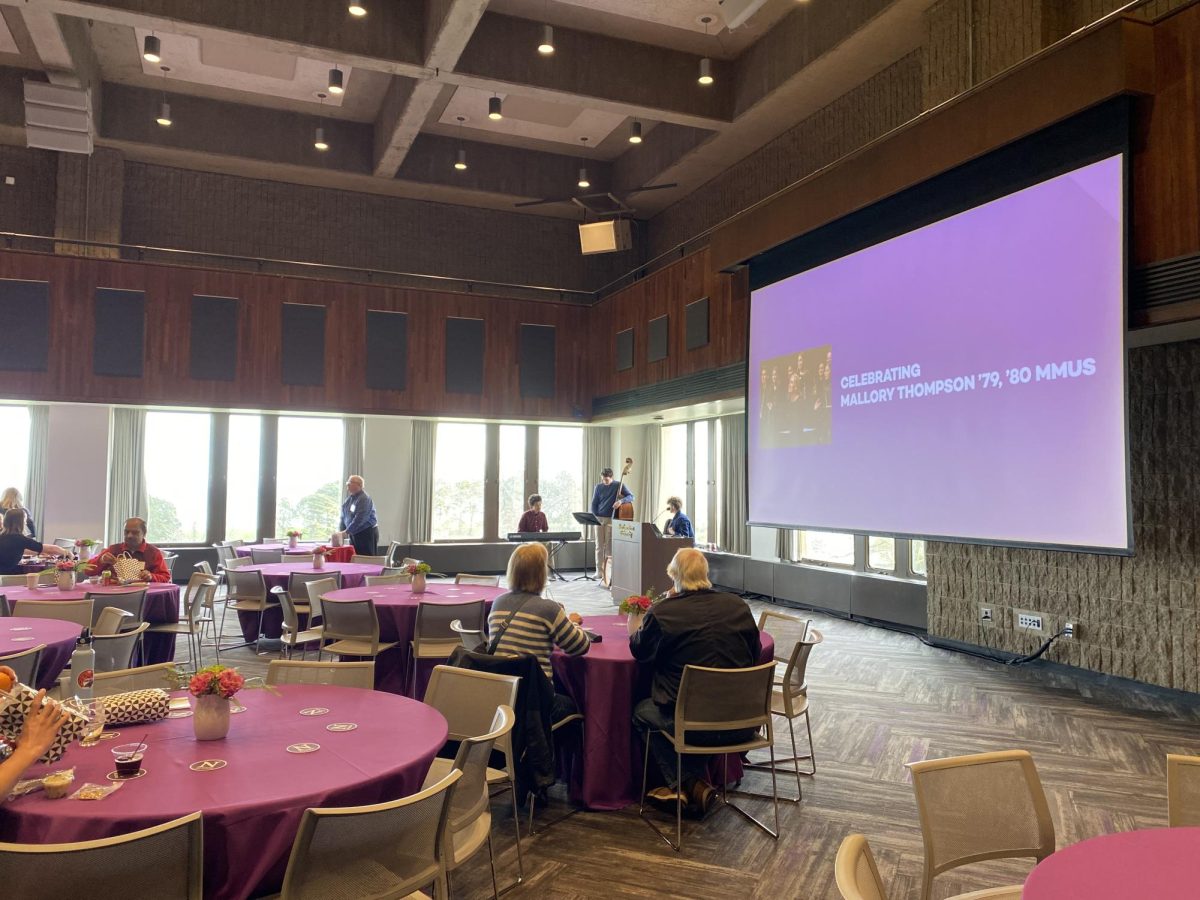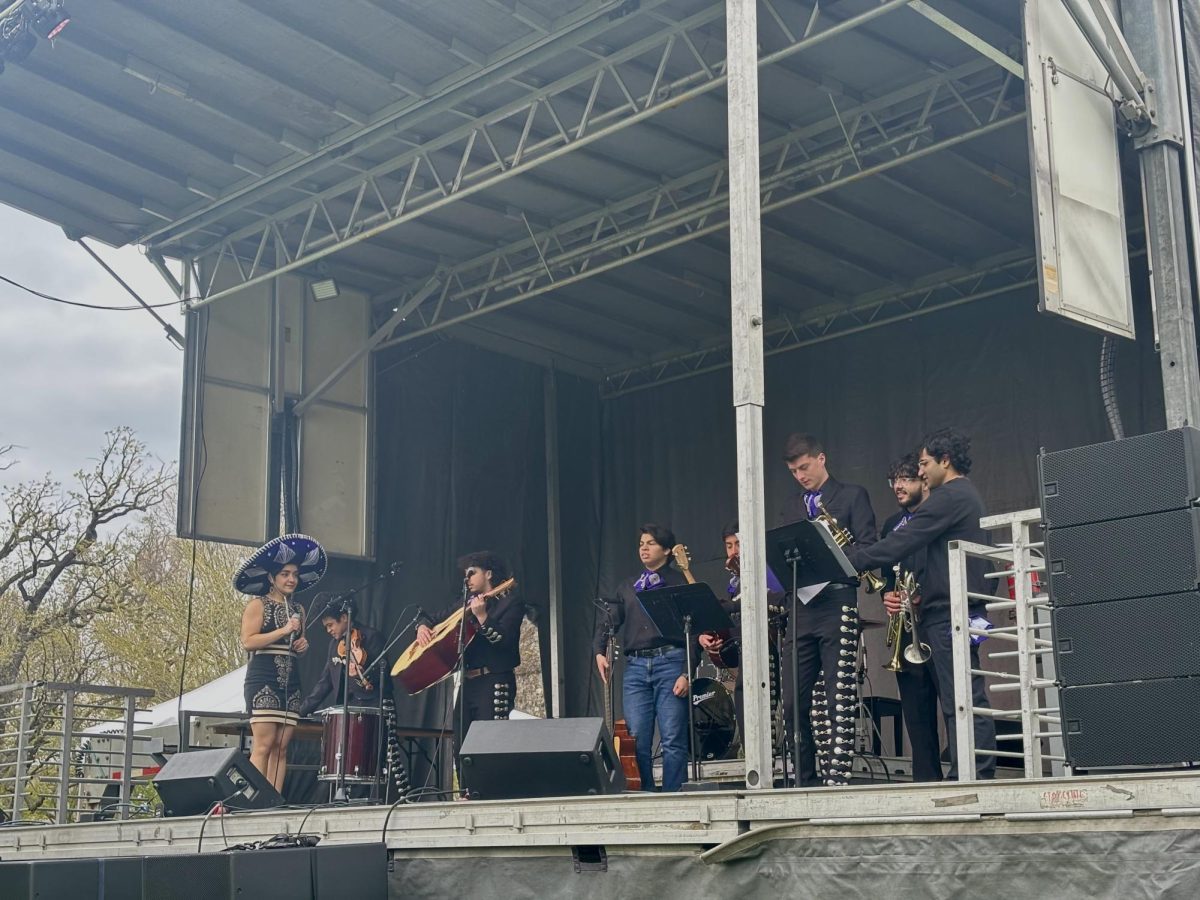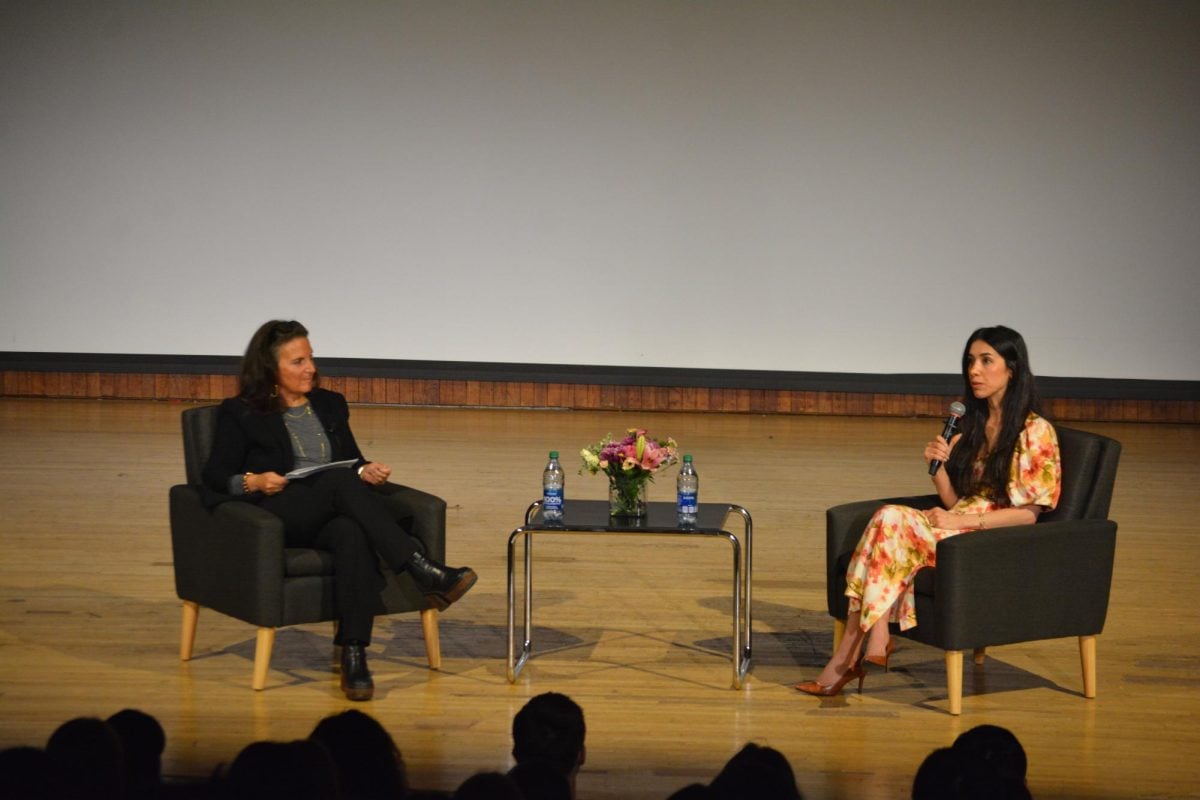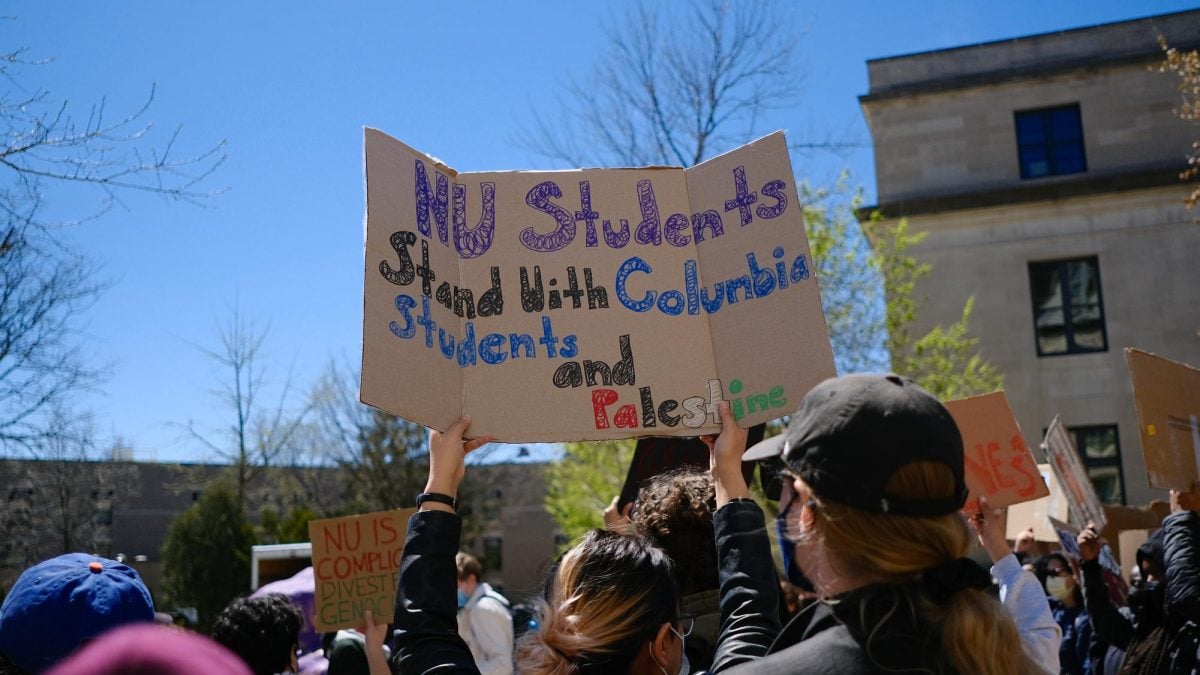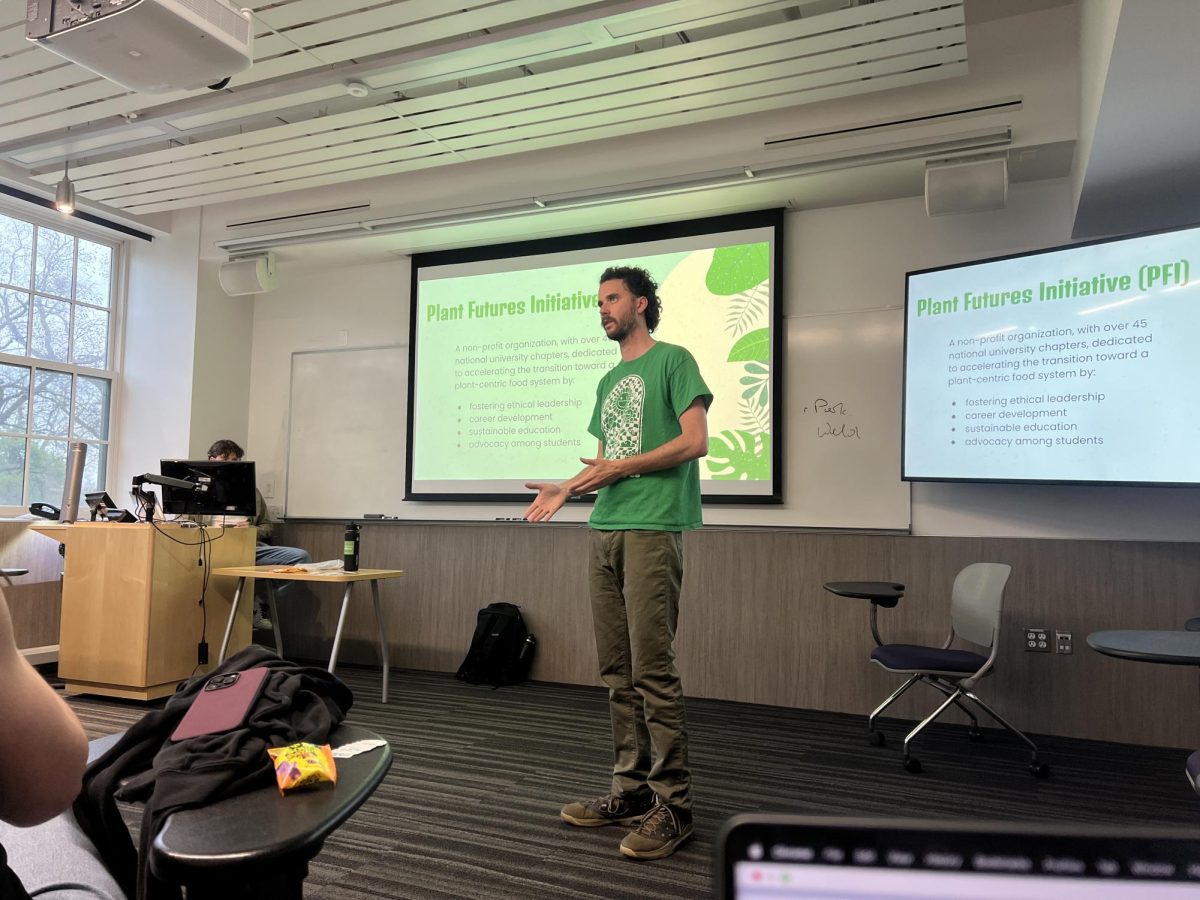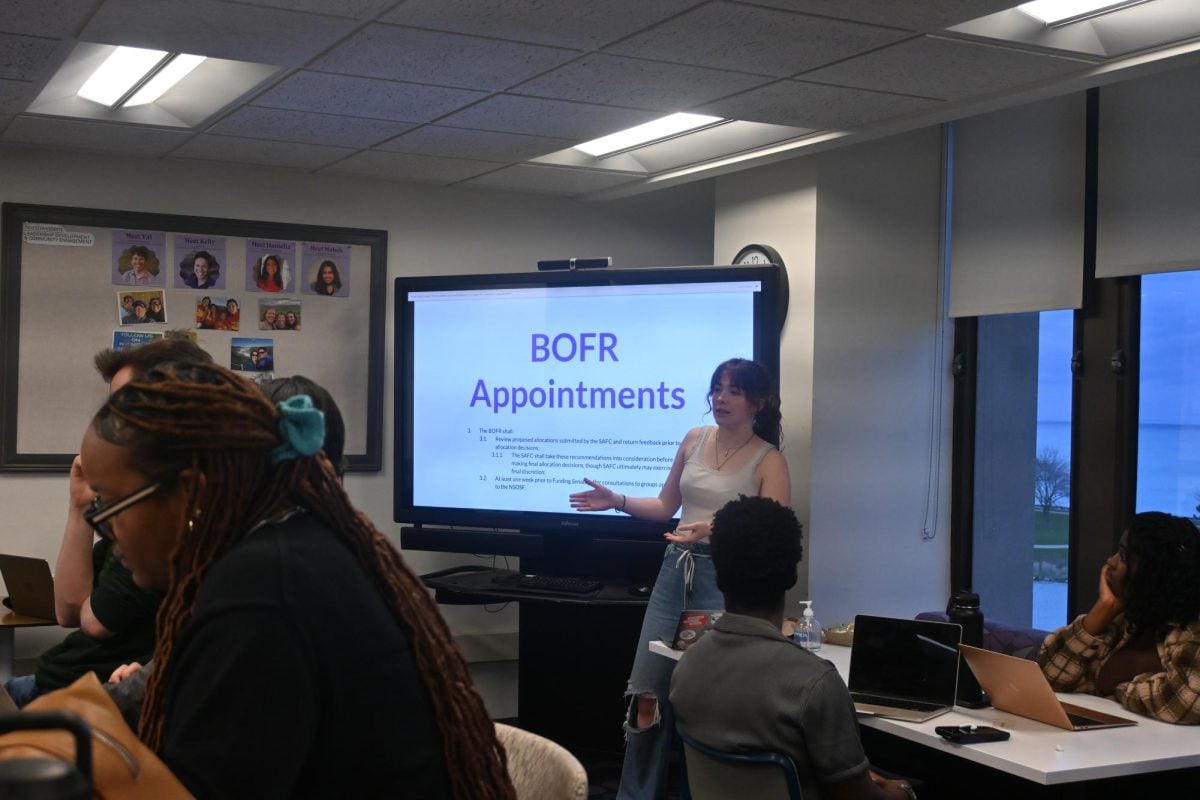Students for Justice in Palestine hosted author, journalist and documentarian Max Blumenthal on Monday night for a speech about the state of the Israel-Palestine conflict.
Blumenthal’s talk in Swift Hall, “Sanitizing Apartheid: Exposing the Israeli Peace Camp,” focused on his belief that there are four key myths in liberal Zionism, including that it is no longer feasible to create a separate Palestinian state. Blumenthal said he disagreed with that notion and noted he believes policy makers have been saying that for decades.
“We always hear that time is running out,” he said. “I decided to Google (that phrase) and I managed to create 44 pages of quotes going back to 1985.”
SESP senior Lafayette Cruise, events chair of Students for Justice in Palestine, said when the group heard Blumenthal was in Chicago to speak at DePaul University and Loyola University Chicago, it asked him to visit Northwestern. Nearly 40 students attended the speech, in addition to several community members and one of Blumenthal’s aunts.
Blumenthal also spoke about the presidential foreign policy debate that took place later in the night and expressed doubt that what he sees as the plight of the Palestinians would be mentioned.
During his remarks, Blumenthal criticized what he referred to as the “paradoxical ideology of liberal Zionism.” He argued that Zionism, the movement for the preservation of the Jewish state in Israel, is an ideology that privileges one group over another and therefore cannot be liberal.
The bigger picture of Blumenthal’s speech was the conflict between Israelis and Palestinians that originates largely from the formation of Israel as an independent nation in 1948. Blumenthal said he believed this occurred at the expense of the Palestinian way of life and addressed the perception that his positions may be controversial. He said Jewish youth have attended his talks before and told him that they were shunned by their families for doing so.
Blumenthal criticized the idea that between 1948 and 1967 Israel was a liberal state. He said the Israeli army is called “the most moral army in the world,” but he believes this boils down to the motto that, “as long as (the soldiers) shot, they could cry.” Blumenthal also addressed the idea that more liberal Zionists may be sympathetic to Palestinians.
“The relationship between right-wing Zionism and left-wing Zionism is symbiotic,” Blumenthal said, because both groups work to preserve the Jewish state.
As part of his criticism of liberal Zionists, Blumenthal said, “the most principled left-wingers in Israel are anarchists” because the leftist Zionists work more with the government than against it.
“Liberal Zionists are the only liberals in the world who are committed to engineering a demographic majority,” Blumenthal said.
After Blumenthal finished the structured part of his talk, he took questions from audience, during which one student said she strongly disagrees with Blumenthal’s characterization of Israel as an apartheid state. However, several other students, many of Palestinian heritage, agreed with much of what Blumenthal said and offered their perspectives on the Israeli-Palestinian conflict.
When Blumenthal’s aunt asked him what his solution to this problem would be, Blumenthal said he favored a one-state solution in which all citizens would have equal rights.

